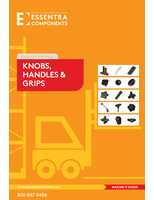Medical Gas Training helps prevent medical gas mix-ups.
Share:
Press Release Summary:
In his "Medical Gas Training For Drivers" article for Welding and Gases Today, GAWDA's FDA and Medical Gases Consultant Thomas L. Badstubner details appropriate driver training for medical gases. Recommendations include that drivers delivering medical gases be trained on FDA's Current Good Manufacturing Practices (cGMP). Also, FDA recommends cGMP training to be presented in multiple, manageable sessions held throughout year (at minimum once/year).
Original Press Release:
Proper Training Helps Prevent Medical Gas Mix-Ups
GAWDA Consultant Thomas L. Badstubner breaks down medical gas training for drivers.
Dewitt, NY: Since the tragedies of 1998 where two nursing home patients died from a medical gas mix-up, the Food and Drug Administration (FDA) has focused on effective training as a way to prevent future problems. GAWDA's FDA & Medical Gases Consultant Thomas L. Badstubner details appropriate driver training for medical gases in his article "Medical Gas Training For Drivers." The article appears in Welding & Gases Today, the leading magazine for the gases and welding equipment industry.
Badstubner recommends that drivers who are delivering medical gases be trained on the FDA's Current Good Manufacturing Practices (cGMP). Furthermore, FDA recommends that cGMP training not be conducted in one massive training session. Rather, it should be presented in smaller, more manageable sessions held throughout the year, or at a minimum be held once a year.
In recent inspections, the FDA has renewed its enforcement commitment to cGMP training for drivers. Medical gas firms have received violations when the driver cGMP training records were not current. The FDA has even gone back into training records for prior years and found unfortunate gaps in training records.
An agenda for a Driver cGMP Training session should include information on medical gas connections; regulations; cGMP Subpart B - Quality Control Unit/Personnel Responsibilities; cGMP Subpart G - Packaging & Labeling Controls; cGMP Subpart H - Holding & Distribution; cGMP Subpart J - Records and Reports.
To learn more about what topics a driver needs to know, read "Medical Gas Training For Drivers" (http://www.weldingandgasestoday.org/index.php/2012/03/medical-gas-training-for-drivers/) at Welding & Gases Today Online. For more information, contact Carole Jesiolowski, senior editor at Welding & Gases Today at carole@weldingandgasestoday.org or 315-445-2347.
About GAWDA
Founded in 1945, the Gases and Welding Distributors Association (GAWDA) is the premier source for manufacturing knowledge, education and networking. Through its member journals (www.weldingandgasestoday.org), e-magazines, newsletters and industry wiki (www.gawdawiki.org), GAWDA connects suppliers of gases and manufacturers of related equipment as well as manufacturers of welding equipment and distribution leaders, for the purpose of safely delivering optimal solutions to the users of those products. GAWDA publications are the industry's voice for all matters related to the latest technology and the most up-to-date processes spanning welding equipment and products and services related to industrial, medical, specialty and cryogenic gases. A 501(c)3 organization, GAWDA members are located throughout North America.




